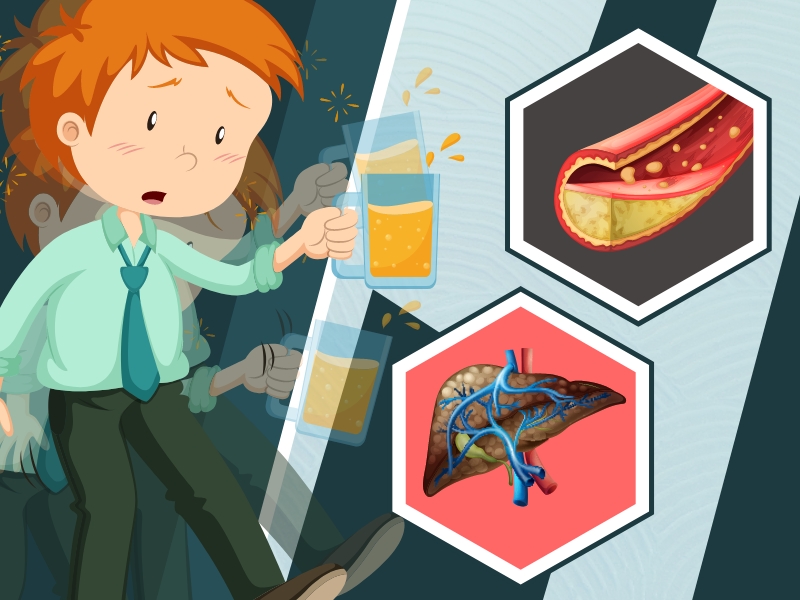Alcohol Misuse

Alcoholism is a medical condition involving frequent or heavy alcohol use. People with this condition can’t stop drinking even when it causes problems, physical harm, or emotional distress to themselves or others.
Alcohol use disorder is a disease of brain function and needs medical and psychological treatments to control it. This condition can be mild, moderate to severe. It can develop quickly or over a long period.
Causes
Scientists are still trying to understand what causes alcohol use disorder. It appears to be a combination of one or more of the following:
- Genetics
- Early childhood events
- Attempts to relieve emotional pain
People are more likely to become an alcoholic if they:
- Experienced trauma, such as physical or sexual abuse
- Consume alcohol often, in large amounts, or start early in life
- Have a family history of alcohol problems
- Have mental health issues, eating disorders, and post-traumatic stress disorder
- Have had stomach bypass surgery for weight issues
Risk Factors
The use of alcohol may begin in the teens, but alcohol misuse occurs more often in the 20s and 30s though it can start at any age.
- Depression
- Having bariatric surgery
- Steady drinking over time
Symptoms
Signs of alcohol use disorder include:
- Wanting to cut back but not being able to
- Obsessing over alcohol
- Drinking more or longer than you planned
- Frequent hangovers
- Feeling irritable or cranky when you’re not drinking
- Blacking out or not remembering things that happened
- Continuing to drink even if it causes distress or harm to you or others
- Having repeated problems with school, work, relationships, or the law because of drinking
- Having cravings for alcohol
- Getting into dangerous situations when you’re drinking
- Giving up activities so you can drink
- Need to drink more and more to get the same effect
- Not being able to stop drinking once you’ve started
- Spending a lot of time drinking or recovering from drinking
A person who is alcohol dependent also might experience symptoms of withdrawal when they cut back or stop drinking, such as:
- Anxiety
- Depression
- Irritability
- Nausea
- Shakiness
- Sweating
- Racing heart
- Restlessness
- Trouble sleeping
- Seizures
Diagnosis
Your doctor will suspect you if you have a problem with alcohol by:
- Asking you several questions related to your drinking habits
- Performing a physical exam
- Completing a psychological evaluation
- Lab tests and imaging tests
Treatment
Treatment for alcohol misuse can vary depending on your needs. Treatment for the condition may include:
- Detox and withdrawal
- Psychological counseling
- Treatment for psychological problems
- Oral medications
- Injected medications
Medicine
- Disulfiram (Antabuse) – helps prevent you from drinking, though it won’t cure alcohol use disorder or remove the compulsion to drink. If you drink alcohol, the medicine produces a physical reaction that may include nausea, flushing, vomiting, and headache.
- Naltrexone – this blocks the good feelings alcohol causes. This may prevent heavy drinking and lessen the urge to drink.
- Acamprosate – helps you fight alcohol cravings once you stop drinking.



